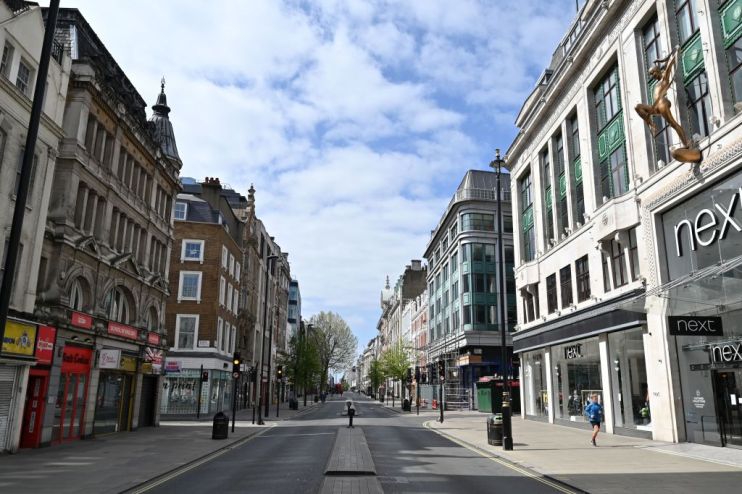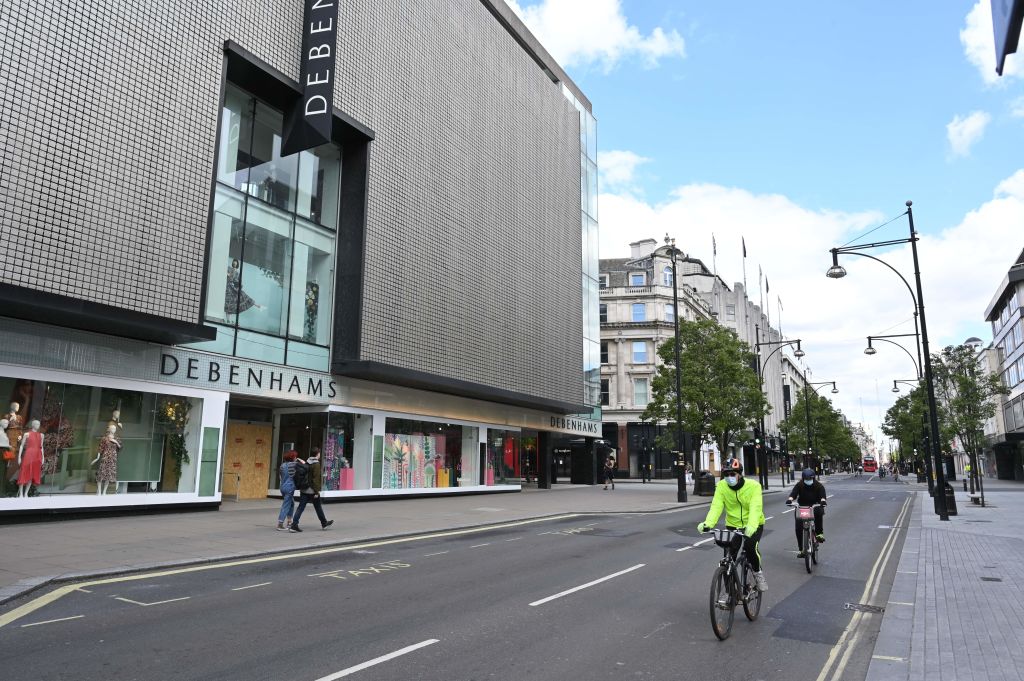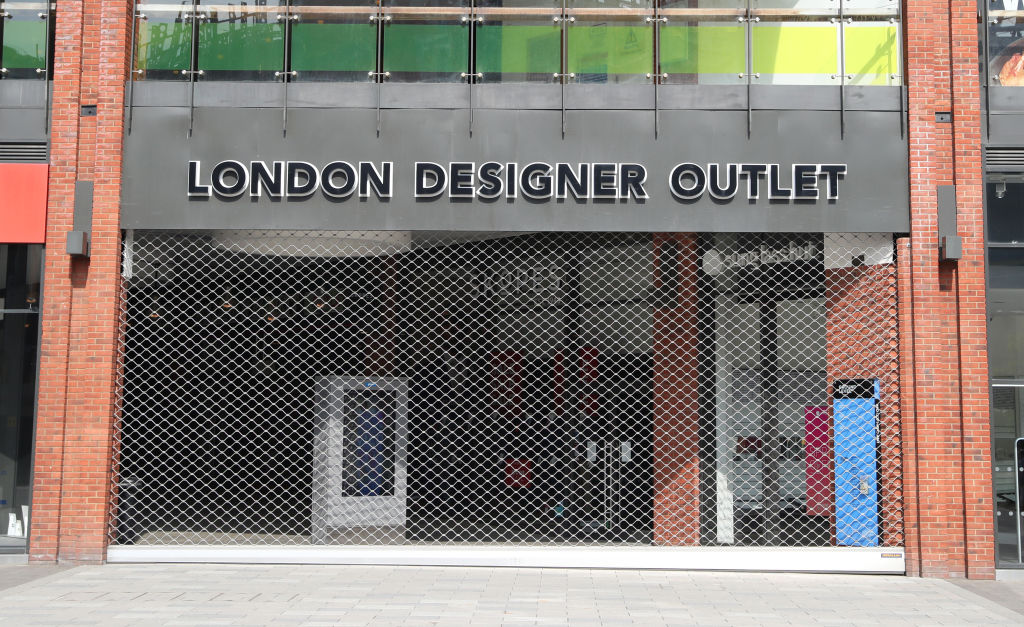Long queues and no discounts: London’s West End sets out rules as 600 shops prepare to reopen

West End businesses have been advised to cut opening hours and abandon in-store promotions as London’s shopping and entertainment district prepares to reopen after the UK coronavirus lockdown.
Retailers have been urged to only offer sales and promotions online to avoid drawing big crowds into stores.
Visitor numbers will be managed with waiting areas to the left of store entrances to avoid long queues.
Shops should reduce trading hours to between 11am and 7pm, according to the document handed out to West End businesses today.
Footpaths in Oxford Street, Bond Street and Regents Street will be marked to help visitors observe social distancing guidelines.
The area will also be deep cleaned before businesses get the go-ahead to reopen, and workers and customers will be provided with face masks and hand wash.
The New West End Company, which compiled the recommendations for its , said the drop off in international tourists meant there will be fewer visitors to the area.
Selfridges store director Meave Wall said: “Today’s guidelines provide helpful clarity for colleagues and customers as we continue to adapt our services to maintain public safety. Collectively adopting a consistent approach across the West End will help us all adopt the habits to keep each other safe over the coming months.”

New West End Company chief executive Jace Tyrrell said: “Our priority is a safe re-opening of the West End, and we continue to work collaboratively with West End businesses and local authorities to put in place clear operational and logistical plans to get back to work safely.
“Having acted early to protect public health, it is right that we set an example for the nation’s high streets in helping communities rebuild confidence in spending time together outside.”
Limiting customer numbers
On Sunday the prime minister is expected to announce a plan for the UK to lift its lockdown restrictions, with some measures being rolled back from Monday.
Retail and leisure businesses are working on plans to implement social distancing measures in place, so they are ready to reopen when the government gives the green light.
Guidance prepared by the British Retail Consortium and published last month recommended that shops limit entry and exit points, using separate doors to access and leave the store if possible.
The industry organisation also said retailers should limit the number of customers in a store at one time after calculating how many could reasonably follow two-metre social distancing.
The recommendations included providing hand sanitiser, disinfectant wipes for trolleys or basket handles, and regularly cleaning touch points such as door handles, hand rails and lift buttons.
BRC chief executive Helen Dickinson said: “Since the lockdown, many retailers have proved how shops can be run safely and effectively in line with the government’s social distancing advice.
“This guidance is the product of retail’s incredible efforts to adapt to exceptional circumstances. The industry knows how to serve the public while protecting staff and customers alike. “
Shopping centres
Specific guidance for shopping centres by Revo said retail landlords should establish a revised centre capacity and consider using footfall technology to track the number of shoppers.
Car park capacity should also be revised to limit the number of visitors.
One way access points were also recommended, as well as “de-cluttering” common areas of the centre to ease the flow of shoppers. Both the common areas and individual retail units of the shopping centre should be disinfected by one company.
Landlords should consider isolating food court areas from the rest of the centre, Revo said.

Vivienne King, chief executive at Revo, said: “This framework is designed to support property owners in addressing the key safety challenges, namely managing hygiene, capacity and maintaining social distancing, and offering reassurance for the public.
“As controlled environments, retail parks and shopping centres are well-placed to adapt to the new environment and collaboration between property owners, retailers and local authorities will be crucial to ensure that this is an effective process and that operations are continuous.”